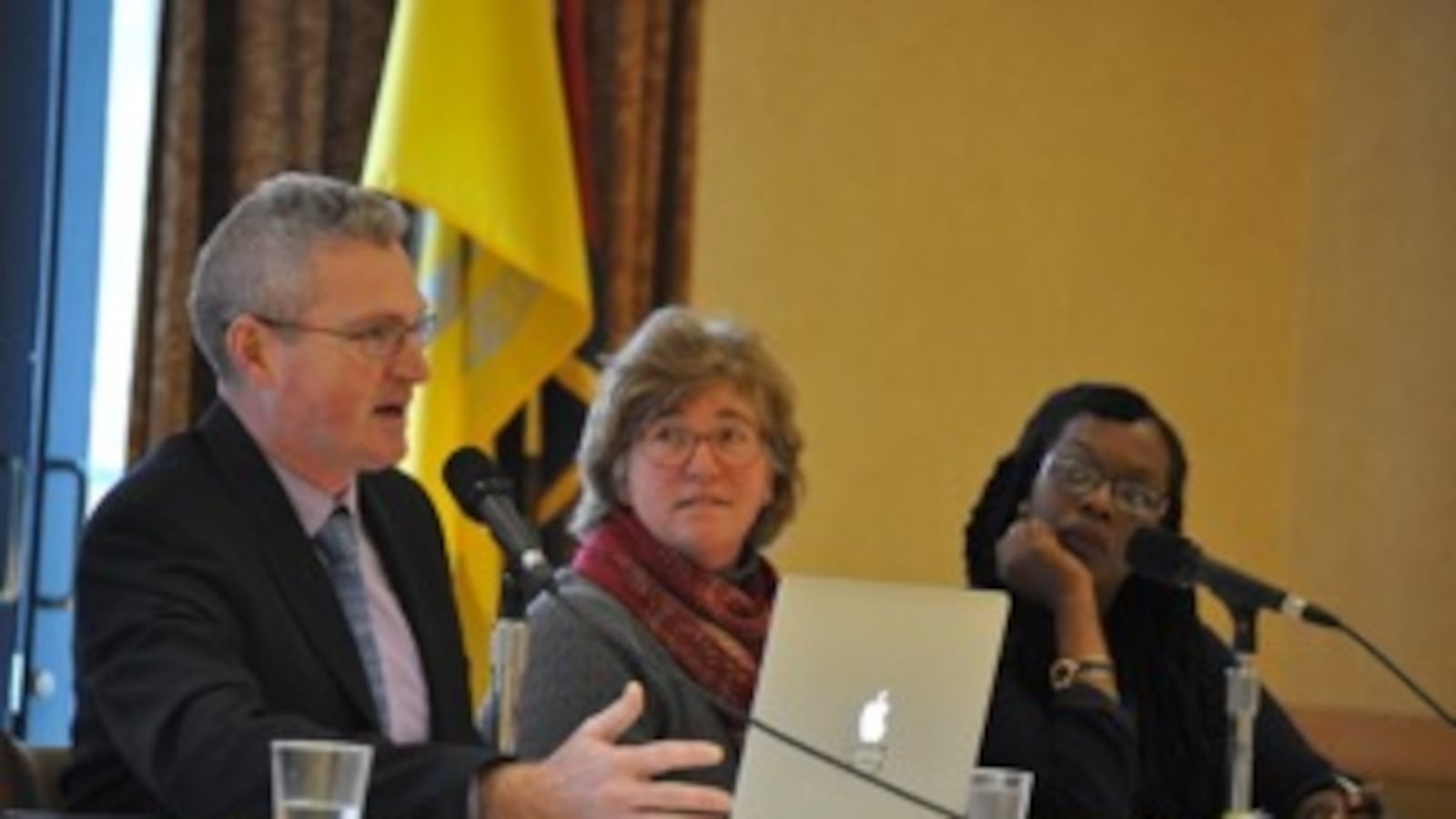A panel discussion at the University of Colorado Boulder today highlighted tensions between Teach For America and traditional teacher preparation programs that persist even as TFA’s priorities and practices evolve.
As part of an effort to build relationships between Teach For America and academic researchers, Raegen Miller, TFA’s vice president of research partnerships, told a room full of doctoral students and faculty that the organization is hoping to dig into a set of questions that is broader and deeper than just asking whether corps members help students’ test scores improve.
“It’s boring to talk about how much better teachers score,” Miller said. “TFA has got to be a valuable lens into getting into some of these bigger questions.”
“If you’re interested in having the U.S. be more selective about teachers…if you’re looking at whether diversity among those serving low-income students matters…policymakers can’t lean in without good evidence,” he said.
Teach For America is a 25-year-old nonprofit that recruits teachers-to-be and places them in high-needs schools for a two-year commitment, after a six-week-long summer training. TFA has been in Colorado since 2007, and currently has 235 teachers in Colorado schools.
Miller was joined by Jennie Whitcomb, Associate Dean of Teacher Education at CU’s School of Education, and Terrenda White, an assistant professor at the school and a Teach For America alumna who describes herself as a “critical friend” of TFA. The conversation was hosted by Kevin Welner, the director of the National Education Policy Center, a national research center housed at the school.
Miller said that there has been a perception that TFA is most interested in publishing research that casts it in a favorable light.
“There’s some kernel of truth to the observation. But it’s not the way things work now going forward,” he said.
But the conversation at today’s event surfaced a continued skepticism among much of the audience about TFA’s approach to teacher recruitment, training, and placement—and about what kinds of projects TFA would want to work with researchers on.
Miller said that over time, TFA has increased its focus on recruiting teachers from low-income backgrounds and teachers of color; beefed up its training; given its local offices more decision-making power; and, perhaps most significantly, taken the official stance that it is good for teachers to stay in the classroom for longer than their two-year commitment through TFA, he said.
He also noted that the organization has for the first time begun to take stances on political issues. TFA recently announced its support for the DREAM Act (Development, Relief, and Education for Alien Minors) which would grant permanent residency status to certain immigrants who arrived in the country illegally as minors.
Still, White said she wondered if the organization would welcome research about whether it was recruiting educators with different attitudes toward teaching, and whether it would change its training model now that it aims to keep more teachers in the classroom.
An audience member asked how committed TFA is to keeping teachers in the classroom for longer than two years, pointing out that the short commitment is still a prominent part of TFA’s advertising.
Miller said he thought the two-year commitment was likely to be part of the program for the foreseeable future, but that TFA still sees part of its mission as creating change in education systems through people who go on to become leaders in systems as well as through those who remain in classrooms.
The pointed questions directed at Miller were likely not a surprise to anyone: NEPC is often skeptical about current education reform efforts, and last year released a piece questioning Teach For America‘s claims that corps members are more effective than other new teachers.
The brevity of the program’s training, the fees districts pay to bring in TFA recruits, the cultural competency and temporary commitment of recruits, and TFA’s marketing of teaching as a stepping stone to graduate school or a higher-paid profession have all been called into question as TFA has grown. The program has also garnered attention for having an admissions rate comparable to elite colleges.
In general, TFA has been fielding more criticism in recent years, some from its own alumni, as a report released earlier this week highlighted.
“In terms of partnering with critical friends, I don’t think there’s really a choice,” Miller said. “This is how you’re going to address questions that relate to the deepest issues around eliminating education inequity.”
This article was updated to clarify Ms. White’s comments and TFA’s current Colorado membership.
Talk to us: What types of research projects would you like to see focused on Teach For America? Let us know in the comment section, on Facebook, or on Twitter @chalkbeatco.


